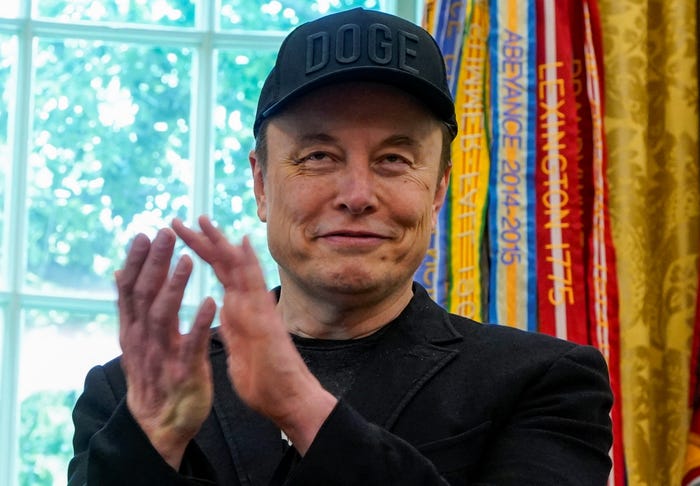BREAKING: Tesla shareholders have just approved CEO Elon Musk’s staggering $1 trillion pay package, contingent on ambitious performance goals. This decision, made during a heated meeting on Thursday, saw 75% of shareholders voting in favor, signaling strong support for Musk’s vision despite significant opposition from some major investors.
The monumental pay package aims to boost Tesla’s market cap to $8.5 trillion by 2035, requiring Musk to achieve extraordinary targets, including selling 12 million vehicles annually and deploying one million robotaxis and humanoid robots. The enthusiasm at the meeting was palpable, with Musk receiving a standing ovation from Tesla enthusiasts in attendance.
However, the approval is not without controversy. Large shareholders, including the world’s largest wealth fund, Norges Bank Investment Management, expressed concern, previously voting against the proposal. Critics argue that the plan lacks necessary incentives for vehicle safety, raising alarms about the potential rush to deploy partially-autonomous vehicles on public roads.
This latest development follows a Delaware judge’s ruling that voided Musk’s previous $56 billion compensation deal from 2018, which was deemed unduly influenced by Musk himself. As Tesla navigates these challenges, the company has relocated its incorporation to Texas and is appealing the decision, leaving uncertainty about how it might impact Musk’s new pay package.
Experts weigh in on the implications of this unprecedented compensation structure. Ian Keas, managing director at Gallagher’s executive compensation consultancy, noted that such high-stakes pay packages are rare in publicly traded companies. “Moon shoot incentives have been, for some time, pretty rare,” he stated, emphasizing the importance of linking compensation to clear performance goals.
Despite the overwhelming approval from shareholders, dissent remains. Shua Sanchez, national campaign director at Safe Autonomous Vehicles Everywhere, highlighted the risks, stating that the pay plan could incentivize hasty deployment of potentially unsafe autonomous technology.
In the lead-up to the vote, Tesla launched extensive campaigns urging shareholders to support Musk, including ads on social media platforms like Facebook and Instagram, which claimed that retaining Musk was essential for the company’s future. However, proxy advisory firms such as ISS and Glass Lewis had previously urged shareholders to reject the proposal, citing concerns over Musk’s outsized influence.
Musk, who has previously referred to proxy firms as “corporate terrorists,” faces significant scrutiny as this new pay structure takes effect. The decision to approve his compensation plan has sparked a critical debate about corporate governance and accountability in one of the world’s most valuable companies.
As Tesla moves forward with its ambitious plans, the implications of Musk’s compensation structure will be closely monitored by investors and industry experts alike. The future of Tesla hinges not just on performance metrics, but also on the balance of power and safety standards within the rapidly evolving electric vehicle market.
Stay tuned for more updates on this developing story as Tesla navigates its next chapter under Musk’s leadership.
